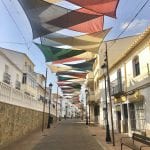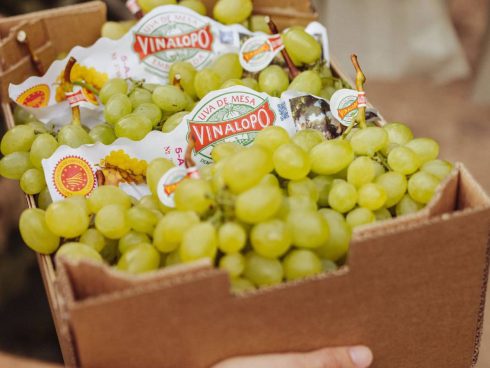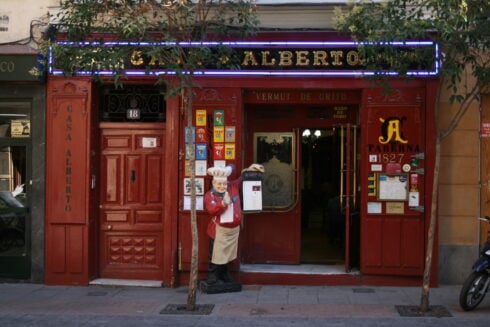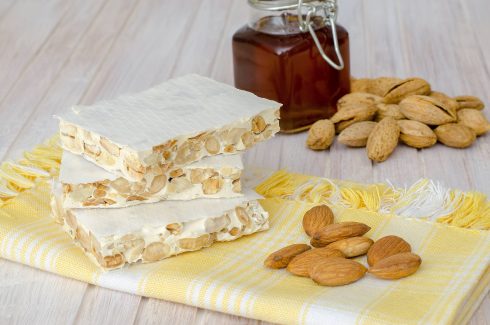
I’M a vegetarian so this is not propaganda… It’s a bad idea to be vegetarian if you want to get on in Spain.
In Bar Castillo, in Manilva, even the ‘salad’ has tuna in it.
“This dish is a tomato stew with chickpeas,” says Juan, the owner of the bar, neglecting to add there could be some pig’s feet in it too.
If you want to connect to a foreign culture, you have to find a route in. A shared delight.
And so I’m sat in Bar Castillo, in the central spine of Manilva town, surrounded by elderly Spaniards shouting at each other with their hands while eating beef livers and downing golden wine.
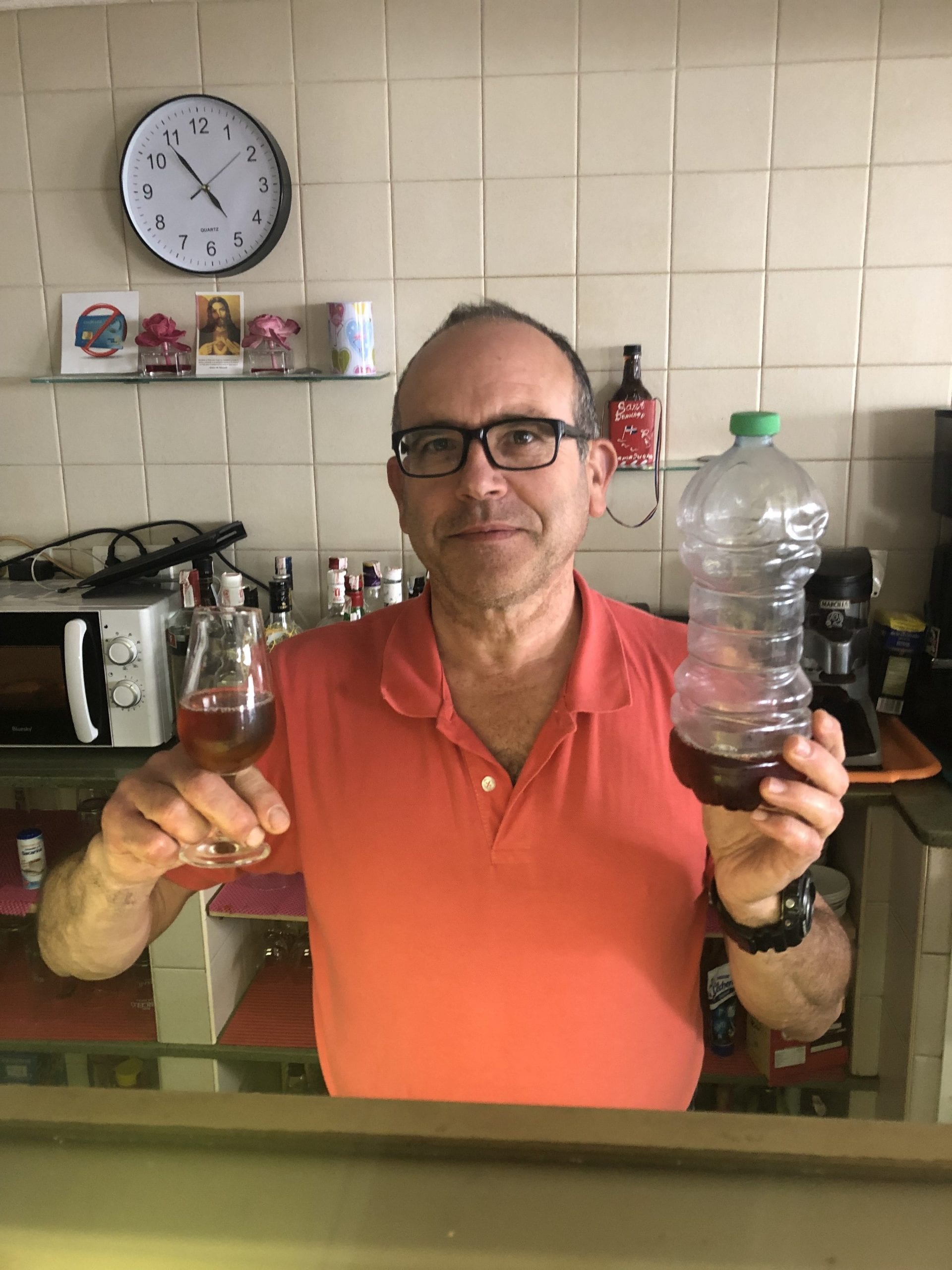
As glass gives way to glass, I watch as one Spaniard – on crutches – limps all the way to behind the bar just to grasp Juan’s shoulder while making some earnest point about politics or ham, then limp back to his stool for more wine.
Juan duly distributes to his well-worn customers from a plastic bottle in the fridge.
“What are they all drinking?” I ask Juan, as he supplies me with manchego cheese—his final culinary compromise before kicking me out.
“Ah, it’s just our wine,” says Juan, shrugging in the Spanish fashion, “you can’t buy it anywhere.”
After a small glass of the fullest, richest wine, that tastes like sweet earth and peaches and mirth, I found my route into Manilva.

“The moscatel de Alejandria is the best table grape in the whole of Spain,” says Antonio Collado Rodriguez, 48, in his garage just outside of Manilva.
He says that the grape is specific to Manilva, whose slopes have been continuously planted with vineyards since 1501.
“In the olden days, probably 90% of this town made a living from selling grapes, the trucks used to come from as far as Bilbao and whatever was left over we would turn into wine,” adds the native Manilveno, who has won seven local awards for his homemade ‘vino mosto’, as moscatel wine is known here.
The golden-white wine, he tells me, comes in three different forms: dry, for which the grapes are plucked before maturing; sweet, for which the grapes are left to ripen; and semi-dry, a blend of the two.
Antonio’s garage is probably better described as a laboratory. Makeshift distilleries, wooden barrels and concoctions litter the dusty subterranean space.

“My father taught me to make wine, and his father taught him – it’s the tradition of Manilva,” he says, clutching a glass jug wrapped in a straw casing woven by his late father’s hands.
He shows me videos of his garage full of Spaniards shouting loudly at each other, as if exorcising the space of silence.
“When my garage is full of all my friends, and every drop of the wine we are drinking was made by my own sweat in my vineyards and my winepress, there’s nothing that satisfies me more in life – it’s what we live for,” he says.
Back at Bar Castillo, Juan tells me the sweet vino mosto I am drinking is ‘illegal’.
“There’s one company that officially sells vino mosto, Nilva, and they only sell the dry one,” he says.
“You can’t buy ‘Manilva sweet’ anywhere.”

When I ask who brewed the one I’m drinking, he looks up and points across the bar to a yellow-shirted elderly man called Bartolo, just as he’s walking out the door.
I run after Bartolo to awkwardly say thanks. He and his wife look around at this English apparition.
But when I utter the word ‘vino mosto’ he instantly grasps me by the shoulders, shouting about his small vineyard and how you can only get ‘moscatel de alejandria’ in Manilva, and that they’re the best table grapes in Andalucia, definitely in Spain – probably the world….
But they’re not. Moscatel de alejandria are grown everywhere from the US to Australia, and I’m sure the French would have something to say about table grapes.
The vineyards surrounding Manilva are also dying out and being sold off to developers – very few young people know how to make wine anymore – and you can’t even buy it anywhere, let alone a grand cru.
But still, knowing all this, would you really choose to stay at home, smug in your Wikipedia-gathered superiority, when you could spend an afternoon grasping an elderly Spaniard’s shoulder and shouting about this over six glasses of his own wine?
Maybe it’s just the strength of the golden wine hitting me, but you might just find yourself coming back for more.
Click here to read more Spain News from The Olive Press.









